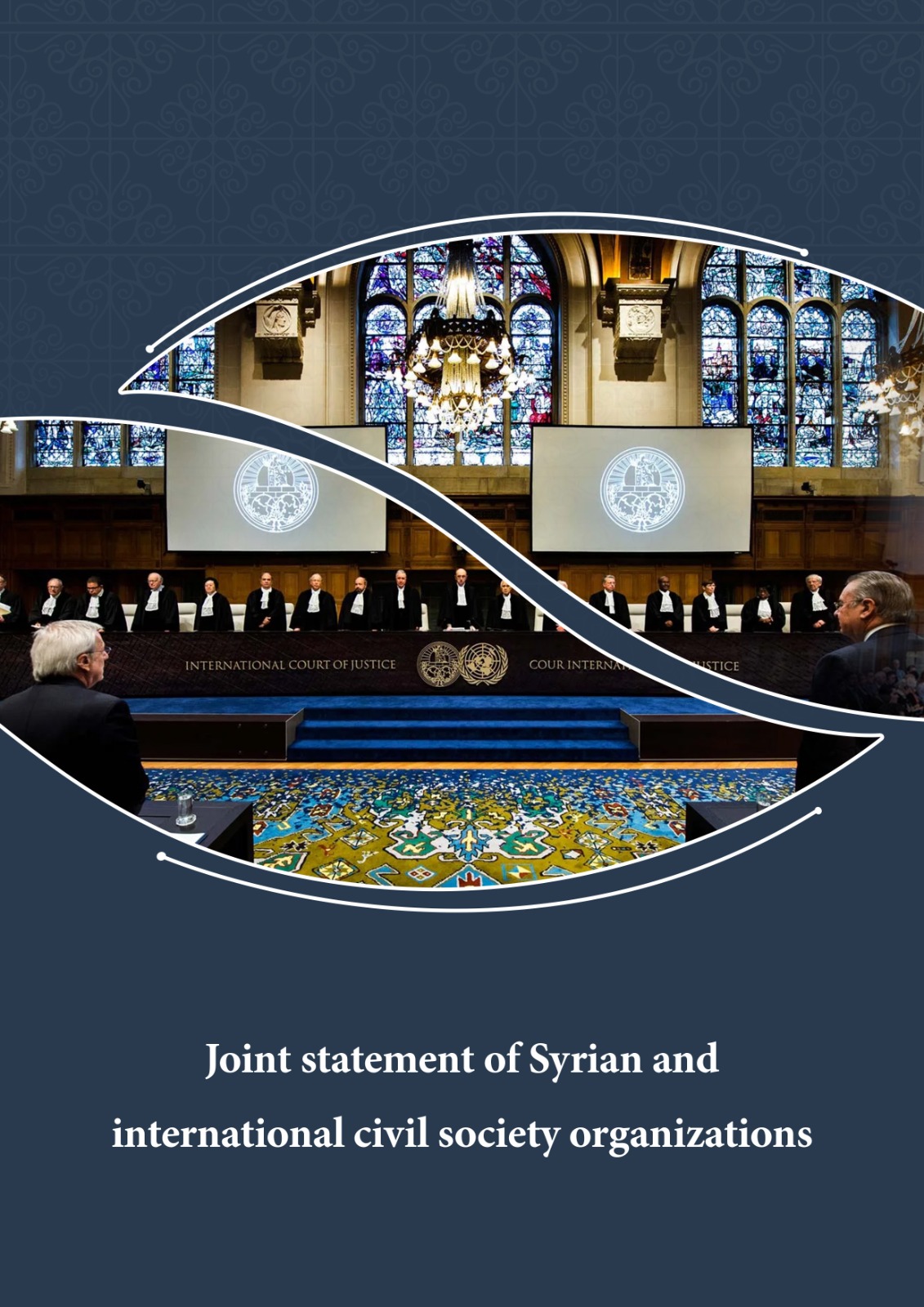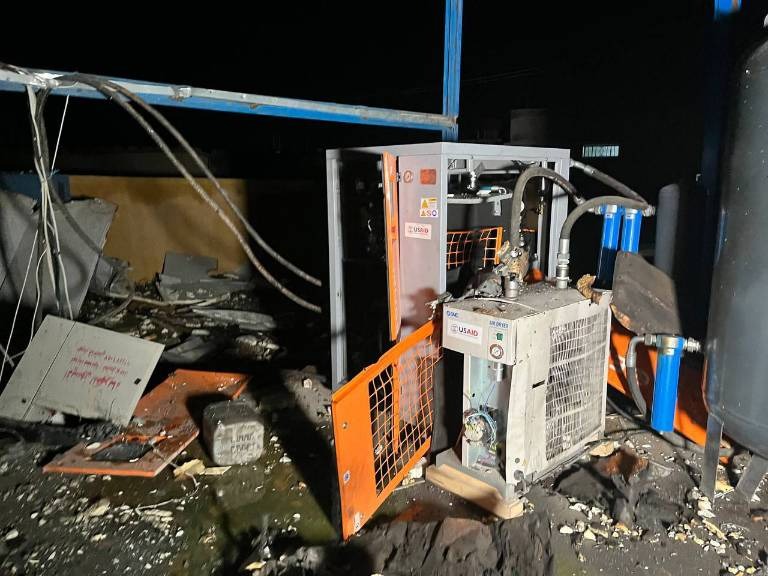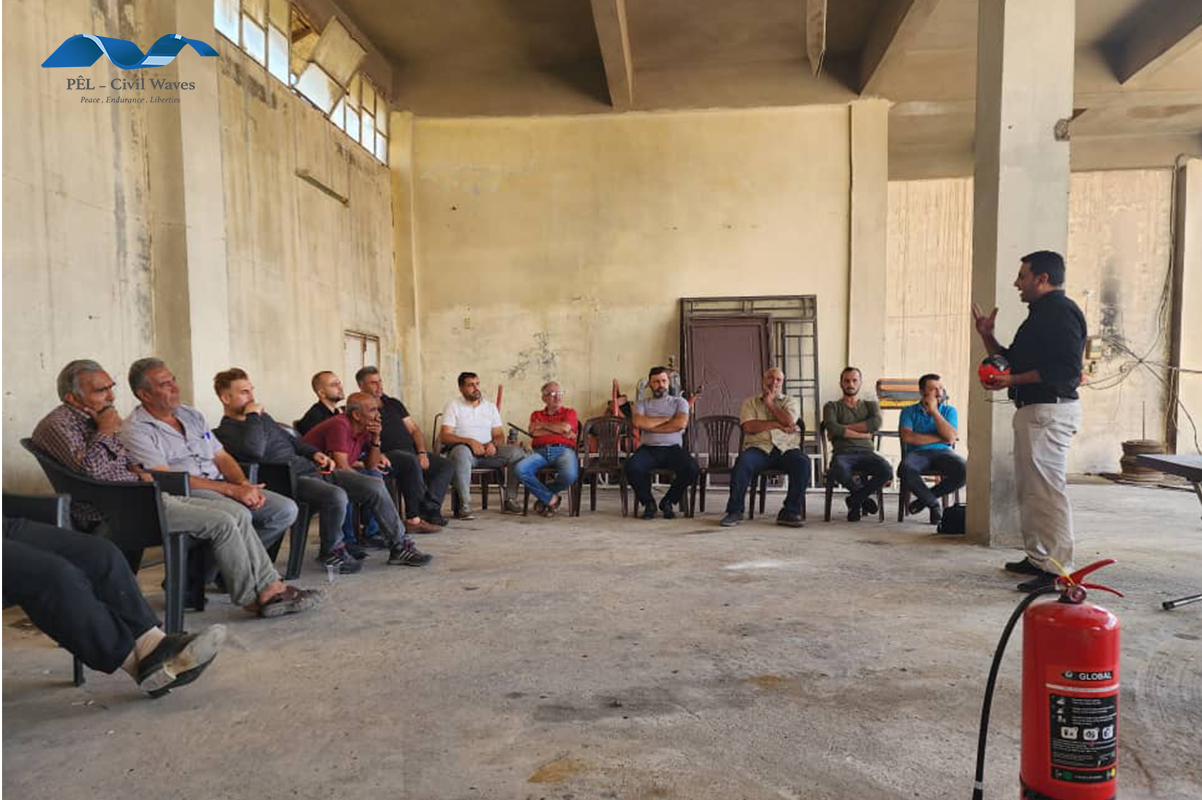Joint Statement of Syrian Civil and International Organizations on the Initiation of Proceedings and and the postponement of the public hearings on provisional measures on Acts of Torture in Syria before the International Court of Justice
- We the undersigned Syrian civil society and international organizations applaud the application instituting proceedings on the Application of the Convention against Torture (CAT) against
the Syrian regime before the International Court of Justice by the Netherlands and Canada. The initiation of proceedings against the Syrian regime on State Responsibility for acts of torture complements continuing accountability efforts under Universal Jurisdiction. It also paves the path for further recognition of the Syrian regime’s State policy of torture Nevertheless, we express surprise and concern at the -3months postponement of the public hearings on provisional measures given the urgent need to address ongoing violations of the CAT.
- For over four decades, and critically since 2011, the Syrian regime has systematically perpetrated torture and ill-treatment in flagrant violation of the Convention against
In this regard, the Commission of Inquiry on the Syrian Arab Republic previously indicated that “it is extremely rare to find an individual who has been detained by the Syrian regime and has not suffered severe torture”. The application submitted by the Netherlands and Canada reflects the experiences of torture and ill-treatment suffered by civilians at the hands of the Syrian regime, including by addressing specific forms of torture such as sexual violence and enforced disappearance, and referring to the use of chemical weapons as resulting in “severe physical and mental suffering”. On this note, Syrian civil society welcomes the inclusion of enforced disappearance in the case as the first instance in which the responsibility of the Syrian regime for enforced disappearance can be assigned in Court.
- For over a decade, Syrian rights groups and civil society have been at the forefront of documenting violations in Syria and creating opportunities to hold the Syrian regime accountable for its
crimes. In 2021 and 2022, State officials were found responsible for crimes against humanity of torture before German courts under individual criminal responsibility in the Anwar R. and Eyad A. cases, with an additional case against Alaa M. still ongoing. In 2023, the investigative judges of the Paris Judicial Court ordered the indictment before the Paris Criminal Court of Ali Mamlouk, Jamil Hassan and Abdel Salam Mahmoud for acts of torture, arbitrary detention and enforced disappearance against two Syrian-French nationals killed under torture by the Syrian regime. These cases have confirmed that acts of torture committed in Syria were not acts of lone individuals acting on their own, but, rather, were part of a systemic policy directed, approved and overseen by the highest ranks of the Syrian regime – amounting to crimes against humanity.
- The International Court of Justice can now consider acts of torture committed in Syria under the concept of State Responsibility – this will allow for acts of torture, ill-treatment, enforced
disappearance and sexual violence to be directly attributed to Syria as a State entity. This finding can be of utmost importance in countering the normalisation efforts spearheaded by countries, notably from the Arab region and neighbouring countries, and in addressing the gradual apathy of the international community toward the Syrian regime. It is even more pertinent in light of the ongoing discourse on refugees’ return to Syria and the deportation of Syrian refugees by neighbouring countries and others in violation of the principle of non-refoulement.
- We the undersigned Syrian civil society and international organisations also welcome the opening of public hearings on provisional measures which, first supposed to take place
on the 19th and 20th of July, will now take place in October 2023 per the request of the Syrian regime. On this note, we would like to highlight that the Syrian regime has previously manipulated and stalled political and accountability processes to avoid confrontation in relation to human rights abuses committed in Syria Given the urgent and life-preserving nature of the provisional measures for victims of torture, we call on the Court to explain the rationale behind the postponement and re-think this decision. After more than a decade of free reign for torture, victims of torture in Syria cannot wait any longer. Moving forward, we call on the Court and relevant parties to take necessary measures to protect the Case from the Syrian’s regime diversion tactics.
- On this note, given the detrimental impact of the postponement on victims, we call on the Court and relevant parties to take necessary measures to ensure better access to information
and more meaningful participation in the upcoming steps by victims and survivors.
We welcome the fact that Syrian civil society, victims and the greater Syrian public will be able to follow the proceedings through the live broadcast of the public hearings and direct access to documents and information on the case. However, with case material and the broadcast only being available in English and French, the Court and relevant parties should find more effective ways to ensure full access to information for Syrian civil society and the broader public (for example, by ensuring Arabic-language coverage of the hearings). Lamenting the lack of access to information in previous accountability efforts, we urge the Court and relevant parties to ensure more effective and inclusive access to information and for future accountability initiatives to follow the model set by the Court to ensure similar measures in future justice efforts.
- On the same note, we call on the Netherlands and Canada to ensure more meaningful representation and participation of Syrian civil society, and victims and survivors of torture in the upcoming steps of the While the Netherlands/Canada v Syria is an inter-
State dispute, it is important to underline the need to adopt more inclusive and participatory approaches to this justice initiative which has been undertaken on behalf of victims. As a result, we therefore urge for greater access to information on the case and its progress, and in ensuring increasing representation and participation of victims and survivors of torture in the case to the greatest extent feasible ahead of the upcoming hearings in October 2023.
- The initiation of proceedings on acts of torture before the ICJ can confirm what the Syrian people has known for decades: that Syria is a torture We welcome the formal initiation
of this justice initiative and reiterate that a future of Syria can only be built on the recognition of the experiences of victims and survivors and their rights, and grounded in accountability and justice for crimes committed in the past decades and still ongoing. Lastly, we highlight the urgent and life-preserving role that provisional measures can take in putting an end to the use of torture and suffering of victims, and therefore we call on the Court to put at the center the interests of victims and those who can still be saved.



